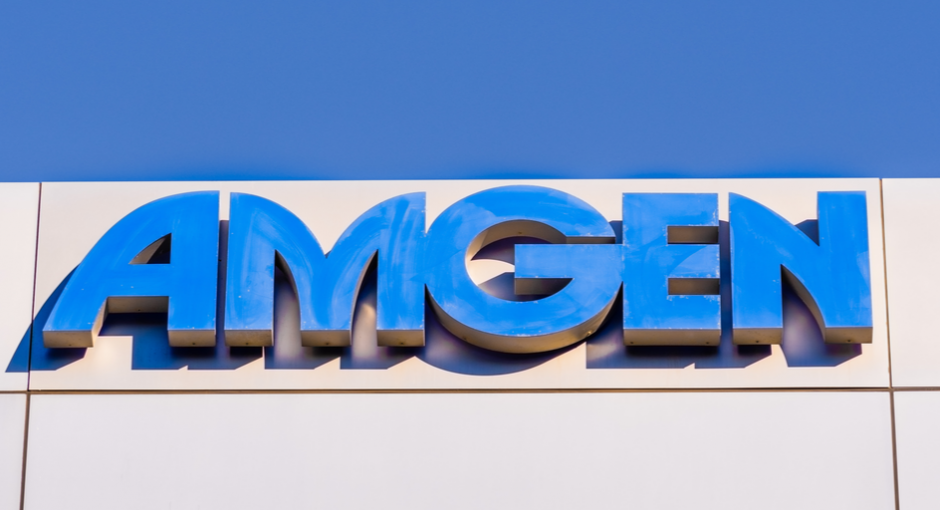UPDATED Wednesday Dec. 1, 2021, 1:15 p.m. EST—Includes comments from Amgen, HRSA, and hospital group 340B Health.
Biopharmaceutical manufacturer Amgen this morning became the 10th pharmaceutical company to announce conditions on 340B pricing when contract pharmacies dispense medicines to patients.
According to a letter and FAQ that hospitals received from Amgen early on Dec. 1, the new policy takes effect on Jan. 3, 2022. Grantee covered entities “will remain eligible to place Bill To / Ship To orders of drugs at the 340B price for their contract pharmacies,” it says.
Amgen’s FAQ says the pricing restrictions “primarily applies to self-administered, pharmacy benefit Amgen products, specifically Repatha, Enbrel, Otezla, and Aimovig. The policy does not currently apply to medical benefit products and Amgen does not intend to change that in the future.”
(Editor’s note: Amgen’s letter uses the general term “covered entity” rather than the specific term “hospital” when referring to the providers to which its policy applies. For purpose of clarity, and considering the exemption for grantee entities, this article will refer to hospitals where it seems clear that Amgen means hospitals.)
Hospitals that submit 340B contract pharmacy claims for their in-house pharmacies using manufacturer contractor 340B ESP’s platform “will be allowed to continue Bill To / Ship To orders for its contract pharmacies,” Amgen said.
Any hospital that does not have an in-house pharmacy capable of dispensing 340B purchased drugs to its patients may use the 340B ESP platform to designate a single contract pharmacy location, the letter says.
“Contract pharmacies that are wholly owned by a 340B hospital or have common ownership with a health system, will remain eligible to receive Bill To / Ship To orders of drugs purchased at the 340B price,” the letter says. “These pharmacies must be registered with HRSA as a contract pharmacy of the 340B hospital. Furthermore, if a covered entity or health system is granted an exemption from Amgen’s 340B distribution policy for its wholly owned contract pharmacy(ies), it may not also designate an independent contract pharmacy.”
The FAQ says hospitals need to make their contract pharmacy designation by Dec. 10 for the designation to be in effect by the new policy’s Jan. 3 effective date. “After December 10th, please allow 10 business days for the designation to take effect, though during holiday periods it may take slightly more time to process,” the FAQ says.
Last week drug manufacturer UCB became the ninth to impose limits on 340B pricing involving contract pharmacies.
Amgen Comment
Amgen said in a statement that it “believes the 340B program needs to ensure all stakeholders do their part to see that the intended beneficiaries of the program —safety net providers and their patients—are receiving the benefits of 340B discounts and is taking proactive measures towards that end.”
“The company is concerned with the well-documented issues about program integrity arising from expansion of contract pharmacy arrangements in recent years,” Amgen said. “In the decade since the Health Resources & Services Administration (HRSA) expanded its contract pharmacy policy, the number of contract pharmacy arrangements in the 340B program has grown by a staggering 4,000%. More than 50% of the profits generated by contract pharmacies are retained by for-profit companies, diverting resources from federal grantees and other covered entities that provide care to uninsured and vulnerable patients.”
HRSA Comment
HRSA told 340B Report, “We are reviewing Amgen’s policy and will evaluate next steps as needed.”
340B Health Comment
“Amgen’s decision to follow the path of other drug companies in violating the federal 340B law will greatly magnify the harm that these refusals are causing for safety-net hospitals and the patients in need who rely on them,” 340B Health President and CEO Maureen Testoni said in a statement.
“Two federal district courts have ruled that drug companies cannot refuse these discounts or impose conditions on them, and the administration and a bipartisan majority of Congress strongly agree,” she said. “It is long past time for these unlawful actions to stop. For the companies that the courts have ruled to be in noncompliance with the 340B law, we call on the administration to escalate enforcement actions in line with those decisions. We also are calling on the federal government to appeal a third federal district court ruling that validates drug companies’ restrictive policies or to take other necessary actions to respond to that decision. The longer this problem continues without resolution, the more drug companies will become emboldened to start unilaterally violating the law and causing irreparable harm to hospitals and their patients.”


